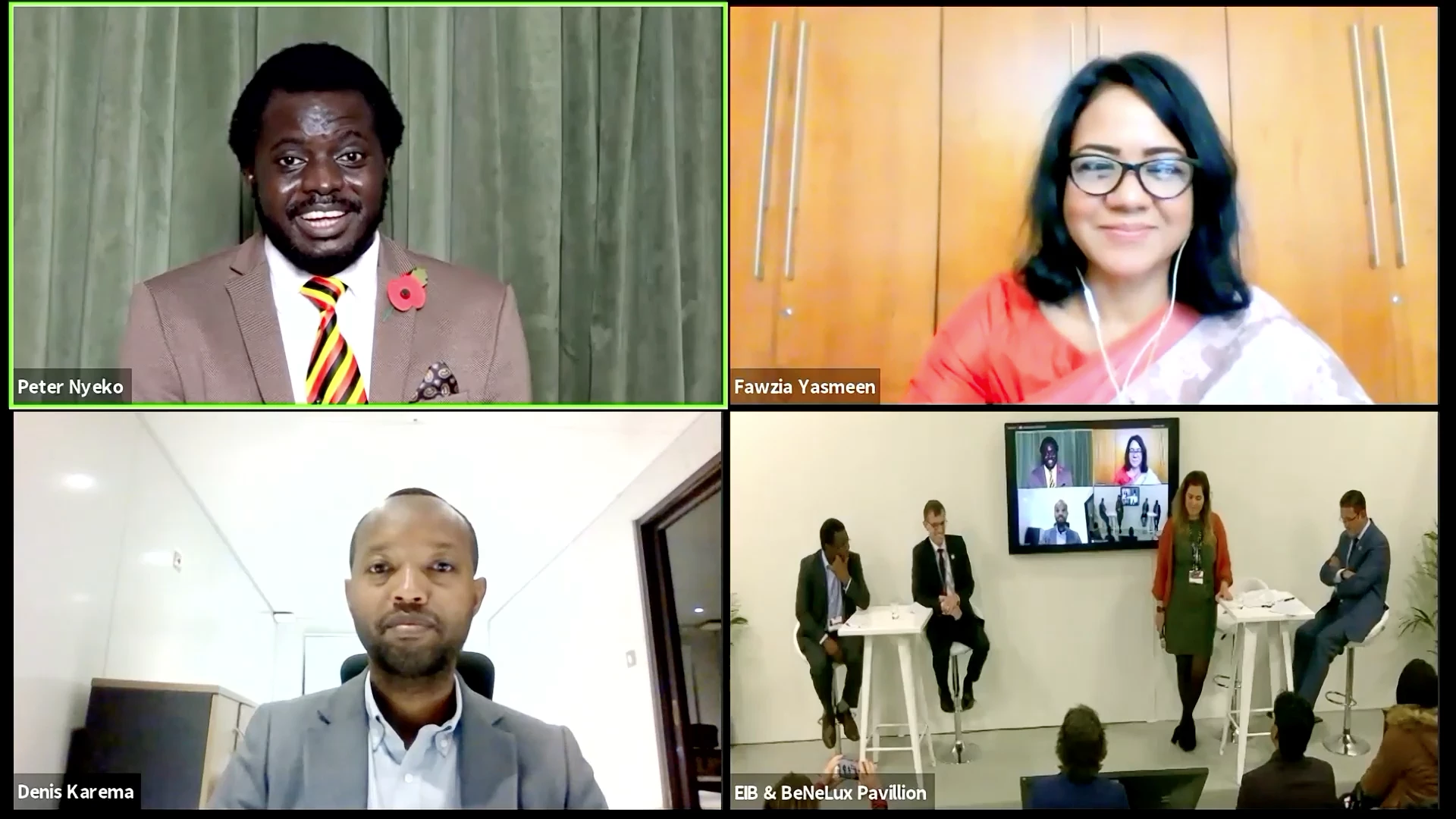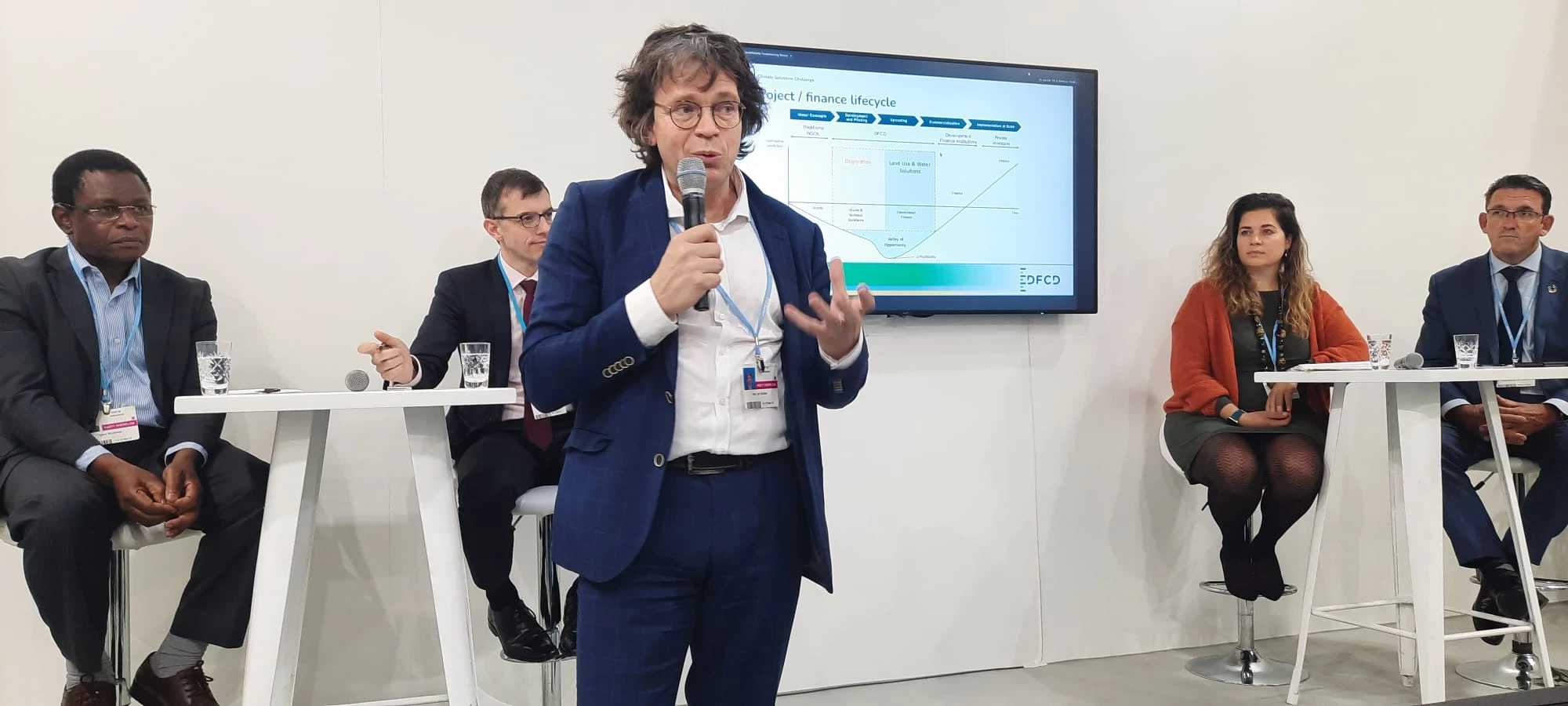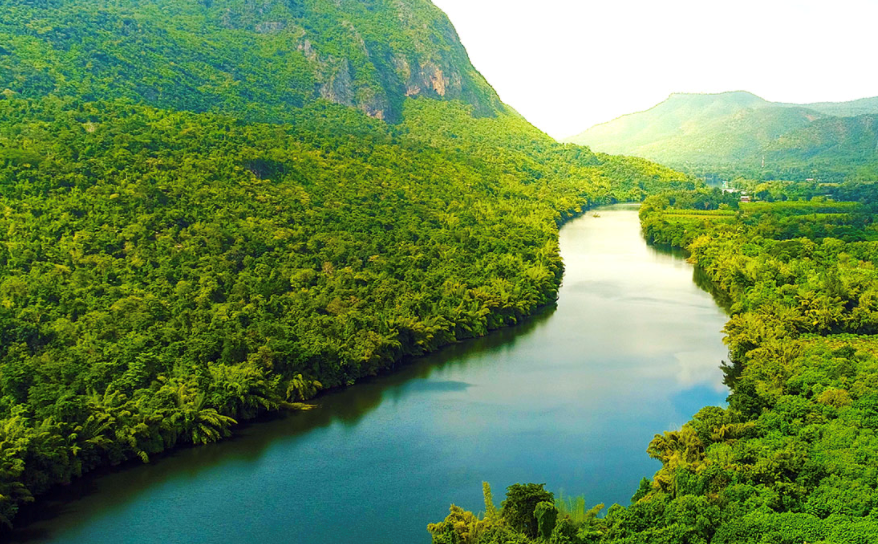DFCD @ Cop 2021: Entrepreneurs on the ground are the real deal amid blah, blah, blah
How do we make sure words are put into action when it comes to climate change? That is the question Kitty van der Heijden, Director-General International Cooperation at the Dutch Ministry of Foreign Affairs, asked in her speech at the Scalable Climate Solutions Challenge of the Dutch Fund for Climate and Development (DFCD) during COP26 in Glasgow.
“I heard so many speeches, panels, coming togethers about how important fighting climate change is. There are ambitions, aspirations, accelerations and actions. These are all very important, but during the COP, there were hardly any events where the matter was: what impact are we generating on the ground? What are we currently realizing, how do we scale that?”
Van der Heijden adjusted the now famous quote of Greta Thunberg: “What I’ve seen is a lot of blah, but too little of tadah: this is what we are achieving.” However, she said, the DFCD Scalable Climate Solutions Challenge Final was the perfect example of showcasing what can be done to fight climate change.
DFCD entrepreneurs take center stage
The DFCD is showing how grants can make a huge impact. According to Van der Heijden: “There is still a huge gap between the funding needs and what we are leveraging at the moment. The quantity is not enough, the quality in terms of it being granted money is not enough and accessibility is a real issue: for the Least Developed Countries and for local organizations to leverage local knowledge and get that to scale.” The DFCD addresses all of these challenges.
At the COP26 event, the three finalists of the Challenge made their final pitch to our expert jury and an on- and offline audience of more than 250 people. They were chosen out of 118 scalable climate projects in Bangladesh, Kenya and Uganda. One proposal per country was selected to go to the finals. The Investment Committee of DFCD’s origination facility had already approved their grant proposals. At COP26, they competed to win an additional development grant of €100,000.

WWF project Mandulis Energy wins the Challenge
After a rigorous selection process, months of coaching and mentorship, weeks of pitch sessions and the final pitch to the jury, Mandulis Energy was chosen as the winner of the Climate Solutions Challenge. Specialized in transforming agricultural waste into cooking fuel and electricity, Mandulis Energy’s solution won over the jury of experts from SNV, FMO, WWF, and Climate Fund Managers (CFM) thanks to a clear business case and proven results for rural communities in Uganda.
"The interesting thing about Mandulis Energy is the impact they make in different areas. Not only do they transform agricultural waste into clean energy, they also fight poverty amongst farmers, improve the health of people and came up with an innovative insurance to protect farmers against financial damage if their crops are being destroyed by wildlife. They show us that impact comes in many shapes and forms."
-Charlotte Floore, WWF's jury member during the event at COP26
Jury equally impressed by the two other finalists
While Mandulis Energy managing director, Peter Nyeko, managed to convince the “shark tank”-inspired panel, the two other entrepreneurs in the running also stood out.
Ispahani Agro, represented by entrepreneur Fawzia Yasmeen, supports farmers in Bangladesh, one of the countries that is most affected by climate change. The Ganges Delta in the south of the country is severely affected by salinity intrusion, waterlogging, and submergence, making it difficult for farmers to grow rice and vegetables.
The project is expected to bring 75,000 hectares of farmland under sustainable management and improve the resilience to climate change. Switching farmers to more sustainable, climate-resilient seeds, and bio-pesticides, will increase farmers’ income by 15 to 20% while reducing their risks to climate change, directly benefiting 500,000 smallholder farmers.
Kenya was represented by entrepreneur Dennis Karema of SoKoFresh. With 40% of all horticulture produced in Kenya failing to make it to market as a result of an informal and unreliable supply chain, the company offers farm level solar powered cold-storage as a service and a digital market linkage platform to seamlessly integrate small and medium scale farmers into professional value chains. By their own account, the company is able to make farmers earn more, lower logistics costs and cut post-harvest loss from 40 to 2%.
First close for Climate Investor Two fund at $675 million

At the end of the event, CFM had big news to share. Our consortium partner announced the Climate Investor Two (CI2), the second blended finance climate financing fund with its first close at $675 million.
The fund, with cornerstone investors like the European Commission, the Nordic Development Fund and commercial investors, such as KLP, IMAS Foundation, Sanlam and Aegon, BNG Bank and FMO, is the second one of its kind.
Where the first one focused on renewable energy, this fund will be devoted to water, oceans and sanitation. The expected output consists of 14 million people supplied with safe water, 3.5 million tons of CO2 emissions annually avoided and 75,000 hectares of wetland and coastal ecosystems restored.
At the DFCD’s COP26 event, CFM CEO Andrew Johnson called it a “strong statement on how to spend money where it is needed.”
About DFCD
The Dutch Fund for Climate and Development (DFCD) is a climate fund, dedicated to supporting climate adaptation and mitigation projects which benefit vulnerable communities and landscapes. Initially funded by the Dutch government, it is powered by a consortium of four expert organisations: FMO (Dutch Entrepreneurial Development Bank), CFM (Climate Fund Managers), SNV, a global development partner, and WWF Netherlands.

